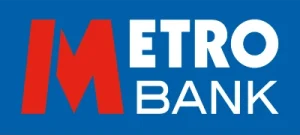
Fixed-rate vs. adjustable-rate mortgages: which is right for you?
When it comes to securing a mortgage in the UK, one of the most significant decisions you’ll face is whether






Enter a few details about what you are looking for.
Save money by comparing instant quotes online.
Enter a few more details and receive free expert mortgage advice from Fluent Money.
Two primary mortgage choices normally become available when you move to a new home.
Porting Your Existing Mortgage: You are allowed to move your current mortgage to your new property if it has portability features. Porting your mortgage saves you early repayment fees but requires a loan application for the new home and possibly additional borrowing if the new property costs more.
Taking Out a New Mortgage: Your options when moving house include finding a new lender or getting a new deal from your existing lender. You gain the ability to explore different options which may lead to a lower interest rate or more advantageous terms.
Comparing deals with MoneySpider helps you identify which mortgage option best suits your needs because each choice presents distinct costs and benefits.
A portable mortgage enables you to move to a new property while keeping your existing mortgage arrangement intact. Porting enables you to move your existing mortgage to your new home. Lenders will perform a financial reassessment and evaluate the new property’s value during the mortgage porting process.
The need for extra borrowing on the new property may lead to you obtaining a “top-up” loan with different terms and interest rates than those of your current mortgage.
The choice between maintaining your current lender or changing depends on your specific situation.
Staying with Your Current Lender: Staying with your current lender might be easier and cheaper when your mortgage is portable and their rate is competitive.
Switching to a New Lender: You might save money over time by switching lenders if you find better deals with another lender or your financial situation changes. MoneySpider helps you make an informed decision about whether changing lenders suits your needs.
A portable mortgage enables you to move to a new property while keeping your existing mortgage arrangement intact. Porting enables you to move your existing mortgage to your new home. Lenders will perform a financial reassessment and evaluate the new property’s value during the mortgage porting process.
The need for extra borrowing on the new property may lead to you obtaining a “top-up” loan with different terms and interest rates than those of your current mortgage.
Your new house value serves as a fundamental factor in mortgage calculations.
Asking for more money to purchase a costlier property may lead to higher monthly loan payments or necessitate a bigger deposit.
Relocating to a cheaper home enables you to minimize your mortgage balance or drop your monthly payments while potentially eliminating your mortgage debt altogether.
Your loan-to-value (LTV) ratio determines the interest rates available to you because it compares your loan amount with your property value. A reduced LTV ratio typically allows borrowers to obtain more competitive interest rates.
MoneySpider lets you evaluate multiple mortgage rates from different lenders to secure the best deal for you.
Lenders may sometimes match or exceed competitor offers to retain your business.
Watch out for early repayment charges and arrangement fees because they can negate the benefits of changing mortgage providers.
A larger deposit enables borrowers to lower their LTV ratio which can lead to better interest rates.

When it comes to securing a mortgage in the UK, one of the most significant decisions you’ll face is whether

There are lots of exciting things about moving home, but unless finance, research and admin float your boat, finding the

Are you dreaming of a life without mortgage payments? Paying off your mortgage early can free up your finances and

Buying a home is one of the most significant financial decisions you’ll ever make. For most people, it involves securing
Think carefully before securing other debts against your home. Your home may be repossessed if you do not keep up repayments on a mortgage or any debt secured on it. The actual rate and fees charged will depend upon your circumstances. Ask for a personalised illustration. If you are thinking of consolidating existing borrowing you should be aware that you may be extending the terms of the debt and increasing the total amount you repay.